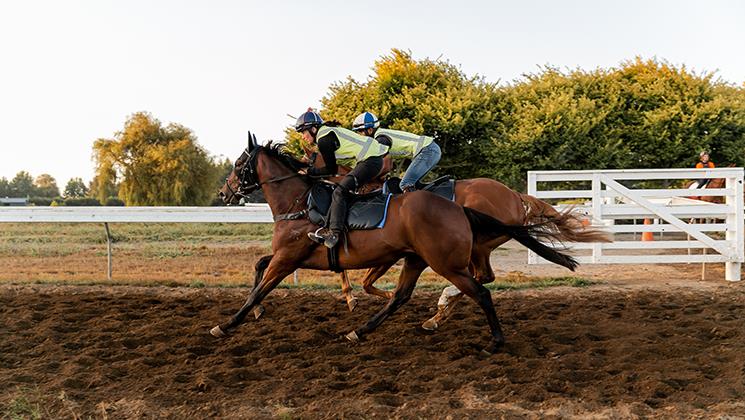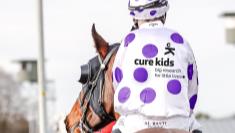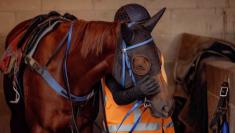
New process to license trackwork riders
The need for competent trackwork riders is an on-going concern for the racing industry.
NZTR has been working closely with the NZ Trainers’ Association over recent months to develop a process to ensure that those licenced as trackwork riders are sufficiently competent. A key group of trainers has been part of this work to ensure it is fit for purpose.
Clearly, there is a need for those people commencing a career as trackwork riders to firstly meet the physical requirements of the job; and are appropriately confident and possess core riding skills. They should also have a base knowledge of safe working practices.
How will the process work?
It will be a two-step process of accreditation and licensing where any aspiring trackwork riders seeking a conditional licence will (after providing the relevant information):
- complete an online multi-choice test (the results will be automatically notified to NZTR Licensing); and arrange and undergo a practical assessment at a regional assessment centre.
This assessment covers strength and fitness, a range of groundwork and riding and will take the best part of a day.
Until evidence of completion of the practical assessment is provided to NZTR Licensing, the person must not be assigned riding duties. Those who pass the assessment will be issued with a licence to ride trackwork with a restriction that they may ride only up to half pace.
- Once a trainer has deemed the rider is competent enough to begin riding at speed (and confirmed this to NZTR) then this restriction will be removed. NZTR will provide guidelines for this assessment which must be followed.
This two-step process will apply to new applicants of both the Trackwork Rider licence, and Stablehand (Riding) Licence.
Anyone who has held a NZTR riding licence (Trackwork Rider, Stablehand Riding, or Jockey), or who is verified as holding a race riding licence overseas will be exempt from the accreditation process.
Until the applicant attains and has received their conditional licence, they may be employed for stable duties – if holding a Stablehand (Non-Riding) licence. Applicants for Stablehand (Riding) will also be required to enrol and complete a level 2 NZQA qualification in Equine Skills.
NZTR and the NZTA are currently working through establishing where the Regional Assessment Centres will be located. At this stage expressions of interest are being sought by NZTR and it is likely that there will be between 3-5 locations throughout the country.
A number of trainers have already indicated they may be willing to become an accredited Regional Assessment Centre, having the knowledge, facilities and horses available to meet the required criteria. NZTR invites other interested parties to get in touch to ensure that all viable options are fully investigated.
Chris Watson has been retained by NZTR to lead this process. For further information on the process and the criteria required, please email [email protected] A full information pack will be provided early in the engagement process. The expressions of interest period will remain open until Friday, 12 March 2021.
When will all this be happening?
Dependent on engagement of Regional Assessment Centres, it is intended to have the centres up and running by May 2021.
The next logical progression will be to provide training centres for people to learn to ride the basics and attain competence riding trackwork. Overall, this will be of considerable benefit to racing as we can better develop local talent and reduce our dependence on overseas riders. There was considerable interest in a survey conducted recently – much of it from experienced equestrian riders or ground staff at racing stables.
What is the cost, and how long does the process take?
NZTR is conscious that an assessment fee is justifiable yet must not be prohibitively high. However, until the costs and charges regarding Regional Assessment Centres are established a figure cannot be confirmed.
Employers and applicant riders should expect the accreditation process to take time to complete. While both time and cost are recognised inconveniences, the outcome of having such a process in place is an added degree of confidence in the base ability of our trackwork riders.









